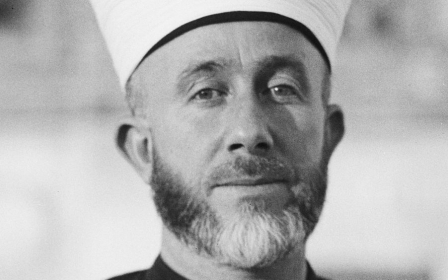The deadly illusion of an Arab nationalist Egypt

Egypt's vote to back Israel’s membership of the United Nations committee on the peaceful use of outer space is unprecedented in the history of Egyptian diplomacy. Despite the existence of a peace treaty between the two countries, Egypt has, since the late 70s, opted – as did the general public and civil society groups – to keep this peace cold without any endeavour to normalise relations. It would seem that the leaders of the military coup opted, right from the start, to pursue a different path. Such a path must motivate Arab nationalists and their affiliates to reconsider their support for the military-backed regime.
The UN vote was not the only indication that a significant development had occurred in Egyptian-Israeli relations. Tel Aviv was one of the few world capitals to have been informed in advance that the army was going to topple the elected president in the summer of 2013. From the very start - in fact the day after its seizure of power - the new regime expressed clear hostility toward the Palestinian Islamists and their administration of the Gaza Strip. In the subsequent months, Cairo did not only tighten the siege around the Strip but went further and designated Palestinian resistance groups as terrorist organisations and threatened to invade.
Sisi's war on Gaza
In a very explicit manner, Egypt incited Israel to wage its latest war on the Gaza Strip and encouraged it to prolong the bombardment. The massive destruction inflicted upon life, property and humanity meant nothing to Cairo. Finally, the siege of Gaza was reinforced when the Egyptian authorities started digging a sea water canal in order to sever the strip from Egypt completely. Experts say this measure could pose a major threat to the soil and ground water reservoirs in the Palestinian neighbourhood.
Such developments were not unseen by the supporters of the July regime. However, the Arab nationalists among them managed, most probably, to find a convenient explanation for them: so long as the policies of the regime are directed against the Hamas government in the Gaza Strip, which is no different in its Islamic background from that of President Morsi, there is nothing disturbing about the conduct of the Egyptian regime.
However, today, and in the aftermath of the United Nations vote, which should be placed within the context of the series of policies that are significant because they benefit Israel, it is no longer possible to avoid facing up to the truth: it has been an illusion all along to think that the 3 July regime was going to revive the Arab nationalist spirit and restore respect for the largest Arab army and for the biggest Arab country.
Arab nationalism and political Islam share the same roots, but relations between the two currents went through a period of bloody strife in pursuit of governance and control of the state. This lasted from the 1950s to the 1980s, first in Egypt and then with the rise of the Baath and its ascendence to power in both Syria and Iraq. However, the rapid collapse of nationalist regimes and the decline in the popularity of the nationalist current in the Arab street made most nationalist groups and personalities seek to distance themselves from the regimes that continued to claim to be Arab nationalist. They also sought to bridge the gap between themselves and Islamists.
The birth of the nationalist Islamic conference in the 1990s was the clearest sign of this rapprochement. Both sides were united by the same concerns including the struggle for democratisation, standing up to Israeli expansionism within the Arab sphere and working for a moral and economic Arab renaissance. It was thus natural for both to celebrate in unison the arrival of the Arab revolution and the promises of change it brought with it.
Rupture between currents
However, that rapprochement soon faced two major challenges. A wide section of the Arab nationalists were dismayed and just could not believe that Mohamed Morsi had won the Egyptian presidential elections and had become the first Muslim Brotherhood member to occupy the position of president of the republic in the biggest Arab country.
Some prominent Arab nationalists could not conceal their pleasure when the Egyptian state and its army turned against the elected president and toppled him. The dominant feeling among many Arab nationalists was that the modern Arab state was their own personal property and that the Islamists, no matter how strong they happen to be in the Arab streets, were alien outsiders as far as this state was concerned. In other words, they did not dispute the fact that the regimes of Mubarak, Ben Ali and Ali Abdullah Saleh were corrupt and degenerate, but they did not accept the Islamists as an alternative despite years of rapprochement and joint stances between the two sides.
In what may be considered romantic nostalgia to a bygone era, many nationalists considered the 3 July coup to be a similar transformation to that of 23 July 1952. In both cases, the Egyptian army appeared as the shining knight in armour and in both cases the army seemed to topple a corrupt regime and to trash the Islamists on the roadside. These nationalists could not see that history would not be repeated and that this army is not the same as that army. A coup against a corrupt regime is not the same as the coup against a president who was duly elected in the aftermath of a grand people's revolution.
Syria's misunderstood revolution
Yet, Egypt was not the only point of departure. In Syria too, a sizeable section of the Arab nationalist current miscalculated. In Syria too, an unclear nationalist sentiment toward the regime and its stances vis-a-vis the resistance against Israeli occupation in Lebanon and Palestine blinded the nationalists from seeing the wider context of the Syrian revolution. In one way or another, this section of Arab nationalists ended up adopting the regime's narrative about the revolution. The problem is that the link between the Syrian revolution and the broad movement of the Arab revolution was obvious right from the start.
Furthermore, it was not at all difficult to see the close link between that magnificent show of defiance by millions of Arabs who took the streets in the cities of their own countries and the loss of any remaining legitimacy by the entire regional system, and consequently its incapacity and inability to last longer. In addition, it was not difficult to see that the regime resorted to brute force as a sole means of staying in power rather than taking the initiative to meet the people half way.
Four years had to elapse before the Arabs and the world could see the magnitude of the destruction this regime brought upon the country and the people and the gradual decline of Syria, which has been reduced to no more than a colony occupied by Iran and Russia and to an implicit alliance with Israel in order to ensure the continuation of a minority bloodthirsty regime in Damascus that is left with no more legitimacy.
Both the Arab nationalist and the political Islamist currents were born out of the Arab Islamic reformist school of the late 19th and early 20th centuries. Both of them are identified with modern education and with the cultural, economic and political climates of the twentieth century. Both are considered to be the product of the modern Arab state, the post World War I state, with all its predicaments and failures.
Since the 1990s, the rapprochement between the nationalist and Islamic currents was founded upon an agreement to bolster freedoms, democratisation and respect for the will of the people, as well as upon working for the unity of the Arabs and the sovereignty and independence of their homeland. Today, having seen what has become of Egypt and Syria, it would seem necessary to revisit the foundations of that concord.
- Basheer Nafi is a senior research fellow at Al Jazeera Centre for Studies.
The views expressed in this article belong to the author and do not necessarily reflect the editorial policy of Middle East Eye.
Image: A group of Egyptians, shout slogans and hold banners as they stage a demonstration against against Sisi Government and demand the release of their friends, detained by security forces, in Haram neighborhood of Giza, Egypton October 30, 2015. (AA)
New MEE newsletter: Jerusalem Dispatch
Sign up to get the latest insights and analysis on Israel-Palestine, alongside Turkey Unpacked and other MEE newsletters
Middle East Eye delivers independent and unrivalled coverage and analysis of the Middle East, North Africa and beyond. To learn more about republishing this content and the associated fees, please fill out this form. More about MEE can be found here.





